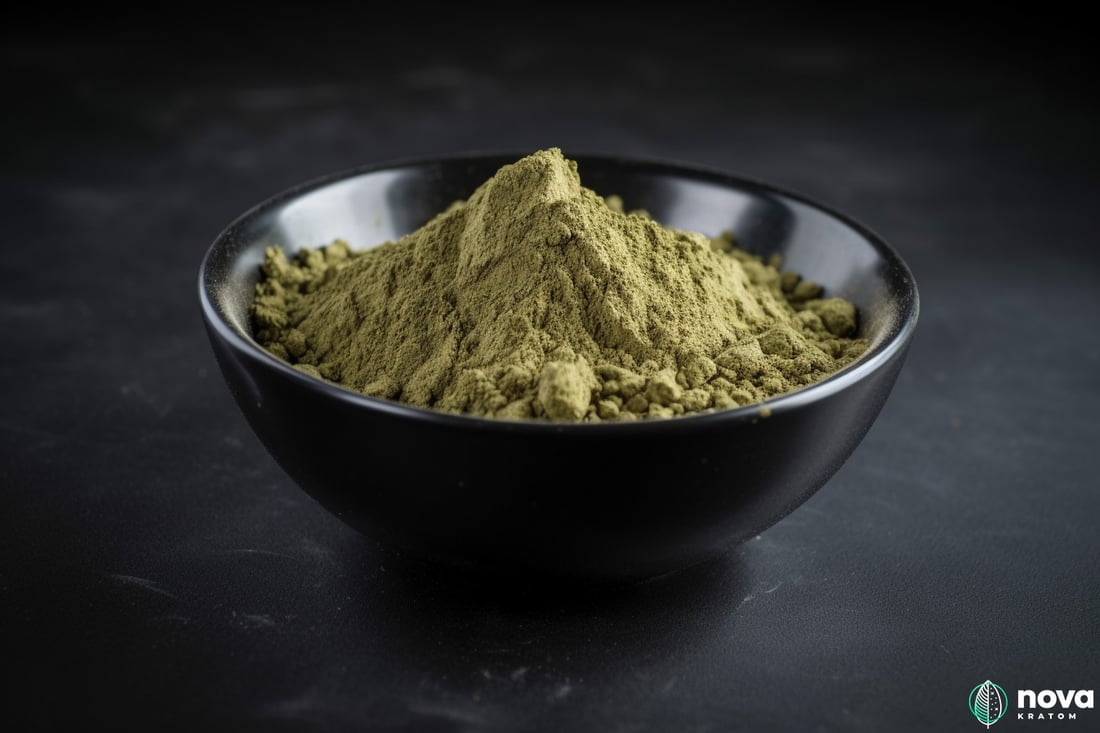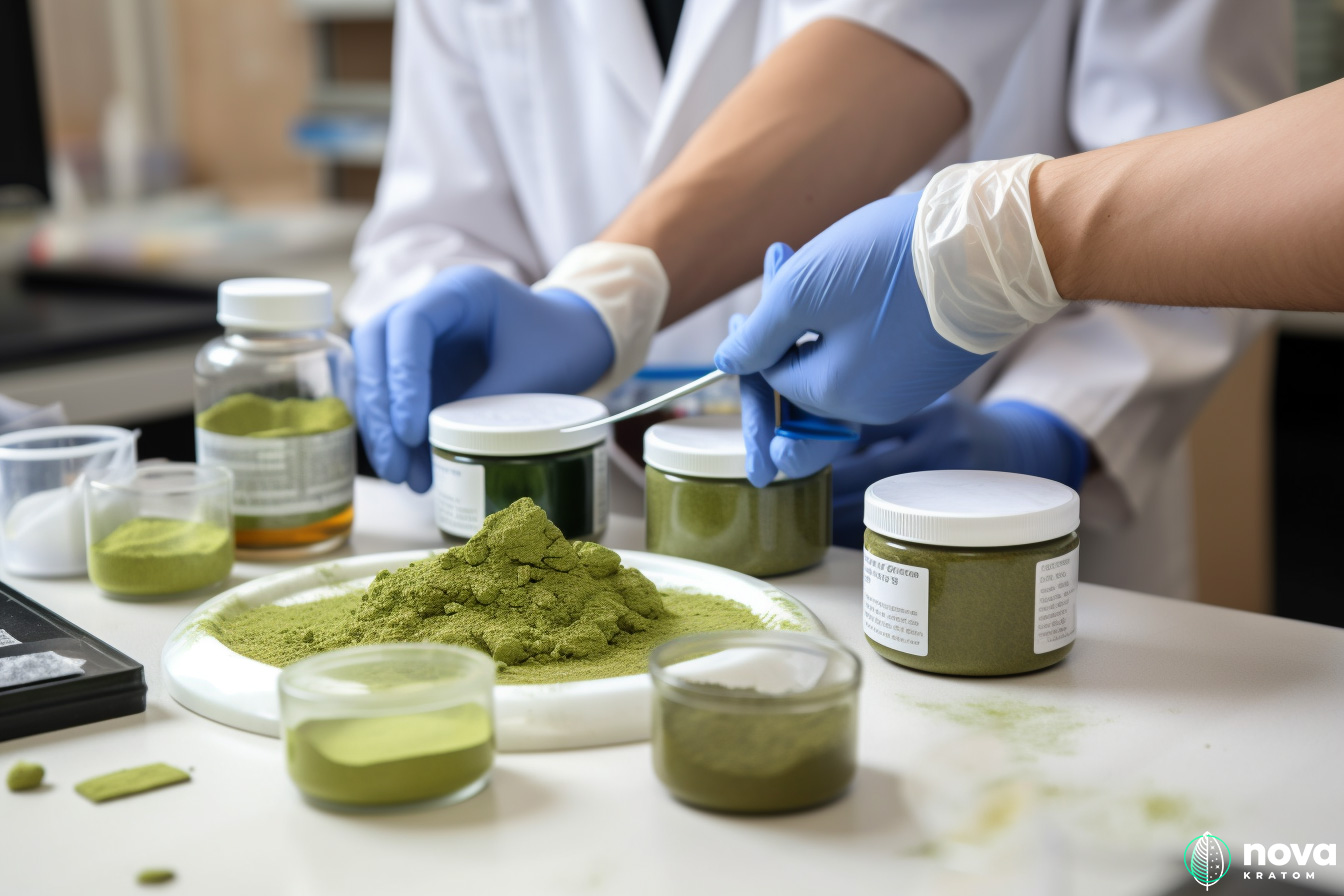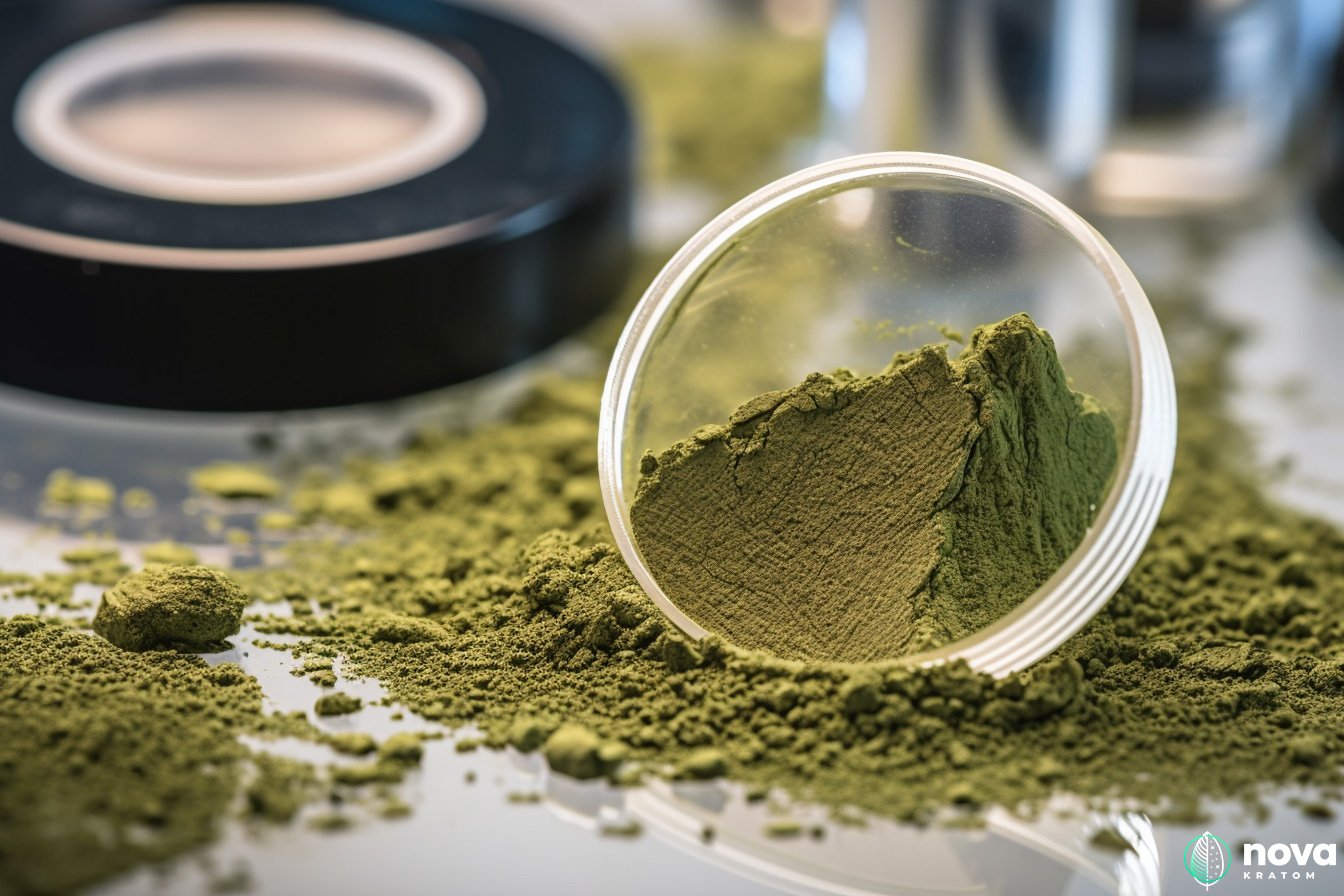Kratom – which is known in Southeast Asia under different names such as Biak or Ketum in Malaysia, Krathom in Thailand, and Neithum in Laos was often – and is still used by farmers to increase productivity and ease pain after a long laborious day in the farms.
Over the recent decades Kratom has grown in popularity across the world thanks to its countless benefits. Today, users around the world talk about how it changes their lifestyle, gives them an energy boost and helps get rid of any pain or discomfort in a quick way – all while having fun!
However, one thing that has been a major topic of discussion in the Kratom community is that of the herbal supplement’s side effects. While you can find reviews on every social media site including Reddit where people discuss Kratom’s side effects by following others’ feedback who have tried different strains tailored specifically to your needs – one of the most terrifying topic has been associated with Kratom-induced constipation.
A condition that comes about as a result of frequent and prolonged use of Kratom – making it difficult to pass poop or lack thereof. While Kratom-induced constipation doesn’t have any severe implications in your body, it may become extremely unpleasant if you experience infrequent bowel movements that are hard to pass.
In severe situations, this might result in fecal impaction, bowel obstruction or even stercoral perforation (ruptures) of the colon (although rare) if intervention is not provided to reverse the condition.
So, how can you avoid constipation while taking Kratom? To begin with, we must grasp why constipation occurs when you begin using Kratom and why maintaining a healthy daily routine that is compatible with your requirements is so important for your wellbeing.
But before we dive into the niceties, let’s first see what constipation really is.
Best Kratom Vendors With Quality Strains in February 2024:
1. Nova Kratom – A trusted, family-owned company that delivers only the freshest, strongest Kratom strains for the best price among our list. Enjoy the convenience of same-day shipping (3 day priority delivery) and unbeatable discounts (link here), making Nova Kratom the most affordable option for premium Kratom on the market. - READ OUR FULL REVIEW OF NOVA HERE (recommended read before choosing a vendor!)
2. Happy Go Leafy – Offers Other Botanicals
3. Super Speciosa – Offers Tea Bags
4. Gaia or Mitragaia – Offers Various Merchandise
What Is Constipation?
When a person has an issue emptying the entire bowel or when the stool passage through the colon is too sluggish, they are said to have chronic constipation. Constipation occurs for a variety of causes that are unrelated to underlying sickness. Dehydration, a lack of dietary fiber, physical inactivity, and drug reaction are all examples of this.
According to the National Institute of Diabetes and Digestive and Kidney Diseases, individuals who go poop less than three times each week may be afflicted with constipation, which can produce lumpy, dry, and hard stools that are difficult and uncomfortable to pass. At the same time the victim may feel that not all stool has passed.
With that in mind, let’s look at how Kratom works in your body and what causes constipation when you first start using Kratom in your health regimen.
How Kratom Works In Your Body
Well, let’s face it. We’re all aware of Kratom and its numerous advantages, but few people are aware of its origins or how it works in the human body.
For starters, Kratom, often known as “Ketum”, is a botanical extract from the leaves of Mitragyna speciosa, an Indonesian tree that grows in Sumatra, Thailand, Burma (Myanmar), and various areas of Southeast Asia. It's important to source Kratom from reputable vendors, such as those listed in this best kratom vendors article.
It may be consumed in several ways, including chewing of fresh Kratom tree leaves, mixing with your favorite beverage or recipe, brewing Kratom tea powder, or even as an all-natural Kratom liquid extract.
Once consumed, Kratom releases over 40 structurally comparable alkaloids including several polyphenols, various glycosides, terpenoid saponins, and several flavonoids. However, most research has concentrated on just two of these indole alkaloids, notably, mitragynine and 7-hydroxymitragynine, which function as partial agonists of the human µ-opioid receptor.
At low doses, Kratom acts as a stimulant and gives you more energy. At moderate dosages, it relieves anxiety and produces a euphoric sensation. At high dosages, it functions as a sedative and induces feelings of calmness and drowsiness.
Why You May Be Experiencing Kratom-induced Constipation?
By acting on the human µ-opioid receptor, Kratom provides a slew of health benefits that are extolled on social media sites. That being said, Kratom has a low risk of negative effects.
However, aside from receiving relief for your symptoms, things may go wrong from time to time and you might experience a variety of Kratom side effects. One of the most common one being Kratom – induced constipation that no one is a fan of.
According to an online study on the patterns of Kratom use and health impacts conducted by the National Library of Medicine, Kratom can have a variety of unfavorable consequences, the most common of which being gastrointestinal issues such as constipation and nausea.
However, despite the fact that there is no scientific evidence to back up the claims that Kratom cures diarrhea, there is enough evidence that this highly coveted herbal supplement has the ability to slow down bowel movements leading to Kratom-induced constipation.
This is often caused by taking too much Kratom or taking it too frequently. This implies that individuals who use larger dosages for long-term problems are more likely to experience constipation compared to those who use low or moderate doses.
Kratom’s constipating properties result from its ability to dehydrate the body of the user. This activates a reflex action in which water is absorbed from feces and other bodily wastes, in order to compensate for dehydration.
Another important thing to keep in mind is that Kratom, in particular, can decrease gut transit time (the time it takes for food to go from mouth to anus). These two aspects work together to produce irregular, hard, and painful bowel motions. Kratom is also harmful to the liver in excessive dosages.
But that’s not all. This is because the problems caused by constipation can extend far beyond the discomfort felt by the patient. Secondarily to long-term constipation, such as excessive strain to pass stool, the anus may be torn, or anal fissures can develop and swollen rectal veins called hemorrhoids can form.
With this information, it’s now clear that you don’t need to bargain with the side effect of Kratom induced constipation; instead, prepare yourself and look for methods to overcome it!
Tips on How to Avoid and Overcome Kratom-Induced Constipation for Your Overall Well-being
You can get past Kratom-induced constipation in a number of ways. And since constipation is defined as a gastrointestinal malady, the food you eat has an impact on it.
As such, paying attention to what you put into your body and changing your diet – even if it’s just by little bit at first – can substantially impact your chances of overcoming Kratom’s side effects.
Something else you need to do is decrease the dosage, switch between strains or even stop taking Kratom. However, since none of these is an option for most people, especially those dealing with chronic diseases, there are a few things you can try to help control your bowels. They include:
1. Increase your water intake
The quickest and simplest approach to treat all forms of constipation, whether due to Kratom or any other means, is to drink more water every day.
This is due to the fact that constipation is linked to dehydration in the colon. So, if your body is properly hydrated, less water will be drawn from the colon. As a result, your stool will be softer and more comfortable to pass.
In a recent publication by the Harvard Health Publishing, any healthy person should drink four to six glasses of water every day to prevent dehydration.
Kratomites can also consider other options such as Kratom-infused teas. These delicious teas make for a more hydrating dose allowing you to wade off constipation and other Kratom related side effects such as dry mouth and dehydration.
2. Maintain a diet rich in dietary fibers
We’re constantly told about the health advantages of protein and vitamins, yet the benefits of eating fiber are frequently neglected. If you don’t care for fibers, you’d be shocked to learn how beneficial fiber can be for your digestive system especially when it comes to managing Kratom-induced constipation.
As it turns out, consuming dietary fiber, which is particularly abundant fruits, whole grains, and fruits, after taking Kratom can prevent or relieve constipation.
But you might be wondering, “What exactly is dietary fiber?” Dietary fiber, sometimes known as roughage or bulk, refers to the components of plant foods that your body cannot digest or absorb. Instead of being digested, fiber is passed almost intact through your stomach, small intestine, and colon before exiting your body.
There are two types of fiber: soluble and insoluble. Both sorts of fiber are necessary for maintaining a healthy intestinal system. Soluble fiber makes waste softer, bigger, and thus easier to pass through your intestines since it allows more water to remain in your stool. Carrots, citrus fruits, apples, psyllium, barley, oats, beans and peas are some good sources of soluble fiber.
Insoluble fiber, on the other hand, promotes the movement of material through your digestive system and increases stool bulk, which may be advantageous to people who have constipation or irregular stools. Some good sources of insoluble fiber include vegetables such potatoes and green beans, whole wheat flour, nuts, and wheat bran.
Overall, increasing your fiber consumption may be important for treating your Kratom-induced constipation. It may also aid in the relief of other Kratom-induced symptoms.
3. Consider taking magnesium-based laxatives
Over-the-counter (OTC) medicines and supplements, such as magnesium citrate, can help with occasional constipation. This supplement is a type of osmotic laxative, which it pulls water into your intestines and helps relax the bowels. The water makes your stool softer and bulkier, making it simpler to pass.
While many people who use Kratom have found magnesium-based laxatives to be very helpful in treating constipation. It’s advised not to take them too often because of the potential risks of side effects such as diarrhea, electrolyte imbalances, and high magnesium levels in the blood.
4. Take Mineral Oil
Mineral oil is a laxative that’s available over-the-counter (OTC) and is used to treat occasional constipation. It’s known as a lubricant laxative since it generally encourages bowel movement in 6 to 8 hours.
The laxative works by retaining water in the stool and intestines. This makes the feces softer and reduces the strain on the intestines during transit. It should not, however, be taken before meals since it affects the absorption of nutrients.
5. Introduce probiotics
Probiotics are live, beneficial bacteria that may be found in fermented foods such as yogurt, kefir, kombucha, tempeh, and sauerkraut. They’re also available as supplements.
Probiotics, when taken, improve the gut micro-biome. This is a group of helpful bacteria in your gastrointestinal tract that aids in the regulation of inflammation management, immune function, digestion, and heart health.
With that in mind, probiotics are an effective strategy to help you have regular bowel motions, especially if you’re experiencing constipation as a result of Kratom.
6. Alternate Kratom days
Daily consumption of Kratom might lead to constipation. On the other hand, alternate days will help avoid this unwanted side effect by allowing your body time for proper digestion and absorption before experiencing any negative impacts from taking in too much at one go.
7. Modifying one’s lifestyle
So, you’re constipated and it’s making your life a living hell? Don’t worry! There are a few easy lifestyle modifications that may be able to help.
- Add more fruit or vegetables to you meals – they are both high-fiber foods that can really do wonders when it comes down how well things move!
- Drink plenty water throughout each day; dehydration may make matters worse due to increased pressure near our intestines.
- To maintain your abdominal muscles in good working order, include exercise into your daily routine.
- It’s important not to wait too long before going to the toilet. Relieve your bowels as soon as possible in the first instance.
- Try switching between strains. The strain you are used to may not be as potent or consistent as the first time you tried using it and you may be tempted to increase the dose. This means that you might be developing some resistance to Kratom. The best option here is to seek a reliable vendor who will continuously supply you with top quality Kratom. Nova Kratom is a great place to start.
Frequently Asked Questions
Is it possible to use Kratom while being constipated?
Sure, as long as the symptoms are mild. However, you need to keep taking in a lot of fluids to avoid other uncomfortable secondary effects like dehydration or cramps. If it doesn’t seem like your problem is going away with just a little more effort on this end then perhaps we should talk about stopping altogether since using Kratom when hooked will only prolong the side effects even further.
Is Kratom constipation bad for you?
Aside from being uncomfortable and irritating, there are no significant implications of Kratom induced constipation. No Kratom-induced toxicities or deaths have been reported thus far, although it’s still too early to tell whether it will cause problems. Just keep in mind that taking large amounts of this herb on a regular basis may be harmful.
Is it necessary to change my diet while taking Kratom?
While not essential, changing your diet while taking Kratom is highly encouraged. It is recommended to stay away from refined carbohydrates and fatty, processed meals aside from eating a diet high in soluble fibers such as fruits and veggies. Taking these measures can help you avoid Kratom induced constipation.
How often should I take Kratom when I’m constipated?
Not so often. 2 to 3 times a week should be enough to keep you nourished and energized, while averting constipation. Adding more than this can lead to other gastrointestinal complications.




